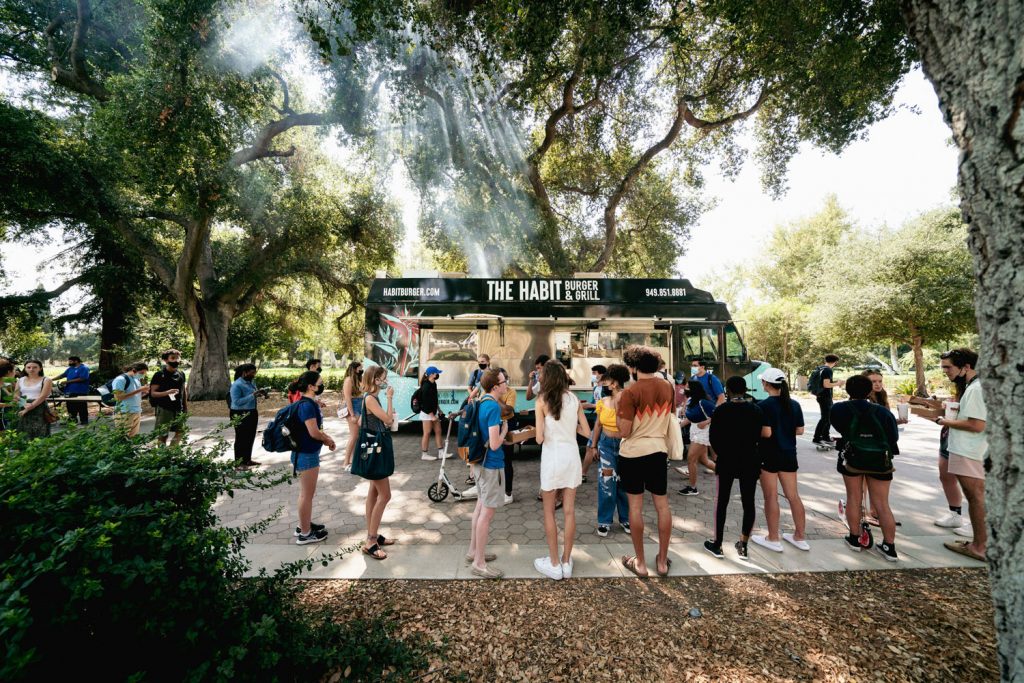Alongside the parade of young oaks planted beside Stover Walk to replace some of the trees lost in the 2022 windstorm, a new sustainable garden is taking root in the beds next to Marston Quad’s grassy expanse.
Once it is established in two to three years, the Marston Quad Sustainable Garden will require minimal to no irrigation. It includes plants such as California sagebrush1, white sage2 and chamise3 that have many uses among the Tongva people, the traditional caretakers of the land Pomona College now occupies. Other plantings with importance to Indigenous peoples include chaparral yucca4, mulefat5, toyon6, manzanita7 and single-leaf pinyon pines8.
While many of the established plants such as camellias and azaleas whose blooms have signaled the arrival of spring for generations remain, the new plantings include 30 species native to California, among them desert mallow9, hummingbird sage10 and California fuchsia11. Designed by Claremont landscape architect Ben McCoy, the garden will have signs that identify the plant species in the Tongva language as well as by their English and Latin names, thanks to input from Tina Calderon, a culture bearer of Gabrielino Tongva, Chumash and Yoeme descent, and Char Miller, W.M. Keck Professor of Environmental Analysis and History.
The decision to create a more drought-tolerant landscape featuring native plants was guided in part by the research of environmental analysis students Lucy Whitman Sandmeyer ’21, Madi Brothers ’22, Owen Hoffsten ’22 and Maya Edstrom SC ’22, who completed their 2022 senior capstone project report, “Roots & Resilience: Reimagining Marston Quad after the Windstorm,” under the guidance of Professor Guillermo Douglass-Jaimes. The group surveyed alumni, students, staff and faculty, receiving the majority of input from alumni, with more than 300 responses. Alumni also had an opportunity to voice their opinions during the 2022 Alumni Weekend in one of two charrettes held by the student researchers.
The survey indicated that most of the Pomona community sees Marston Quad as the heart of campus, the students reported, and supports a landscape plan that “maintains the same open and green design as before the windstorm, features shade trees—especially native oaks—and [is] prepared to withstand the changing climate.”







